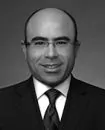On January 12, 2018, the United States Supreme Court granted certiorari in Lagos v. United States, No. 16-20146 (2018), which presents the question of whether victims (including corporate victims) are entitled to have their internal investigatory costs reimbursed by defendants under the Mandatory Victims Restitution Act (MVRA), 18 U.S.C. § 3663A. This issue has divided the circuit courts for years. The Fifth Circuit and five other federal courts of appeals have concluded that these costs, including fees paid by victims to outside counsel and forensic experts, constitute "other expenses incurred during participation in the investigation or prosecution of the offense" within the meaning of the MVRA. The D.C. Circuit, meanwhile, has determined that the term "investigation" in the statute refers to the actual government investigation rather than an internal investigation, and that a company cannot be said to have "participated" in such an investigation through activities and investigative costs that took place prior to the matter being referred to the government for prosecution.
In granting certiorari, the Supreme Court is poised to issue a decision that will have a significant impact on how (and when) corporations investigate potential crimes and report them to the government. If the Court sides with the D.C. Circuit, it will create bottom-line incentives for encouraging early reporting of crimes to the government—incentives above and beyond those created by the Department of Justice (and its sister agencies) and their policies. If the Court adopts the approach favored by the other circuits, it will give companies greater certainty that their investigative costs will be recoverable (absent a judgment-proof defendant) regardless of how and when the investigation was initiated. Either way, this is certainly a case to watch for corporations everywhere.
For the full version of a related article that comprehensively examines the certiorari grant discussed in this Alert and that originally appeared in Bloomberg Law White Collar Crime Report, __ WCR ____ (Jan. 19, 2018), please click here.
The content of this article is intended to provide a general guide to the subject matter. Specialist advice should be sought about your specific circumstances.



